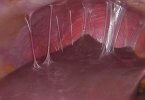What's in this article?
What Low Hemoglobin mean?
Hemoglobin (Hb or Hgb) is the protein in your red blood cells that carries oxygen. A low hemoglobin count is a below-average concentration of the oxygen-carrying hemoglobin proteins in your blood.
A low hemoglobin count is generally defined as less than 13.5 grams of hemoglobin per deciliter (135 grams per liter) of blood for men and less than 12 grams per deciliter (120 grams per liter) for women. In children, the definition varies with age and sex. The threshold differs slightly between medical practices.
A low hemoglobin count is a commonly seen blood test result. In many cases, a low hemoglobin count is only slightly lower than normal, isn’t considered significant and causes no symptoms. A low hemoglobin count can also be caused by an abnormality or disease. In these situations, a low hemoglobin count is referred to as anemia.
Some of the more common causes of anemia are as follows:
- Nutritional (iron, folic acid, or vitamin B 12 deficiency [pernicious anemia])
- Gastrointestinal blood loss (ulcers, colon cancer)
- Kidney problems
- Blood loss (from trauma or surgery)
- Red Blood cell synthesis problems (bone marrow disorders, genetic disorders such as sickle cell anemia)
- Bone marrow suppression by chemotherapy or radiation exposure
Causes of low hemoglobin count
A slight decrease in hemoglobin does not necessarily indicate an illness. Some people adapt to slightly low hemoglobin count, like woman who are menstruating or pregnant.
A significantly low hemoglobin count may be associated with disease or any condition that causes the blood to have very few red blood cells (RBC). This occurs if the body manufactures a smaller number of RBC than normal, if these blood cells are destroyed more rapidly than they are created, or if one experiences blood loss.
Certain conditions and diseases cause the body to manufacture fewer RBC than normal, and these include:
- Vitamin deficiency
- Iron deficiency
- Aplastic anemia
- Multiple myeloma
- Leukemia
- Myelodysplastic syndromes
- Cancer
- Cirrhosis
- Kidney disease
- Hodgkin’s lymphoma (Hodgkin’s disease)
- Hypothyroidism (underactive thyroid)
- Non-Hodgkin lymphoma
- Lead poisoning
- Medications like anti-retroviral drugs and chemotherapy drugs
When the body destroys RBC faster than it produces them, low hemoglobin count occurs, such as in these conditions:
- Enlarged spleen
- Sickle cell anemia
- Porphyria
- Vasculitis
- Thalassemia
Acute or chronic blood loss also results in low hemoglobin count, and this can occur because of any of these:
- Trauma or surgery
- Internal bleeding or hemorrhage
- Frequent blood donations
- Heavy menstrual bleeding
- Frequent nosebleeds
Symptoms of Low Hemoglobin Counts
There are many symptoms that can alert you to low hemoglobin. The following symptoms should be mentioned to your doctor.
- General symptoms. In general, the signs of low hemoglobin include dizziness, headache, fatigue and a general feeling or tiredness. It might be tough to concentrate. You can experience an irregular heartbeat or notice that your skin, gums or nail beds are very pale in color. In addition, you might experience shortness of breath, palpitations and chest pain with more severe cases of low hemoglobin.
- Rare symptoms. Other symptoms that might occur but are relatively rare include excessive sweating, vomiting, and persistent heartburn. You might experience swelling in your arms or legs, and could even notice bloody stool when you go to the bathroom.
- Symptoms in children. The symptoms in children can be more severe, as low hemoglobin can lead to long-term consequences. Look for paleness, a rapid heartbeat, a lowered ability to concentrate, poor neurological development and disturbed behavior patterns.
Treatment for low hemoglobin count
- Blood test- A routine blood test will show if you have a low hemoglobin count. The underlying cause of anemia, if present, will be shown by doing a complete medical history, physical examination and other laboratory blood tests.
- Medications and supplements- Doctors usually prescribe iron and vitamin supplements to improve the hemoglobin levels. Although these supplements may be obtained over-the-counter, it is better to consult a doctor who can recommend appropriate dosage and type of supplement depending on the patient’s health condition. Other medications may be needed to treat the underlying disease that is causing one’s low hemoglobin count.
- Diet- Proper diet, which includes foods that contain a high amount of iron, is recommended. Recommended food sources of iron include red meat, oysters, shrimp, leafy green vegetables, beans, peas, cereals, raisins, and dried apricots.
- It may take many months of taking supplements and improving the diet before the level of hemoglobin increases. Therefore, people who are at a risk of having low hemoglobin count must take adequate amounts of food that are high in iron food to prevent it.





